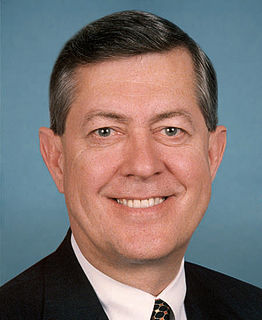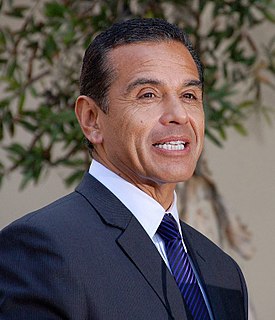Top 1200 Tax Returns Quotes & Sayings - Page 11
Explore popular Tax Returns quotes.
Last updated on December 18, 2024.
A very small proportion of the country's black money is in the movie industry. Because we are written about, public attention is focused on us. Do you think there is no black money in other businesses? With the exception of government servants and others who have tax deducted at source, there are tax evaders in every walk of life.
The IRS spends God knows how much of your tax money on these toll-free information hot lines staffed by IRS employees, whose idea of a dynamite tax tip is that you should print neatly. If you ask them a real tax question, such as how you can cheat, they're useless. So, for guidance, you want to look to big business. Big business never pays a nickel in taxes, according to Ralph Nader, who represents a big consumer organization that never pays a nickel in taxes. . . .
In the meantime the big corporations are fleeing America for tax havens and places like Ireland, Luxembourg and the Grand Cayman Islands; the rich are finding more tax loopholes to expect; so when are the people going to basically roll up their sleeves and say, we've had enough, we're going to recapture Congress.
I think the ethos for Gov. Romney is to use a whole variety of policies, of which tax policy is one, to try to raise the rate of growth. We've had a recovery from the financial crisis that would be well below what one might normally expect for a recovery from such a deep recession. And to counteract that we need better tax policy.
If the economy of today were operating close to capacity levels with little unemployment, or if a sudden change in our military requirements should cause a scramble for men and resources, then I would oppose tax reductions as irresponsible and inflationary; and I would not hesitate to recommend a tax increase if that were necessary.
My tax plan will cut taxes for 95 percent of workers, because we need to put money back into the pockets of struggling middle-class families and close the egregious tax loopholes that have exploded over the last eight years. My plan eliminates capital gains taxes entirely for the small businesses and start-ups that are the backbone of our economy, as opposed to John McCain's plan, which would tax these businesses. John McCain is running to serve out a third Bush term. But the truth is, when it comes to taxes, that's not being fair to George Bush.
I forget what the relevant American rate is, but I can tell you that our goal is to have a combined federal-provincial corporate tax rate of no more than 25 percent. We're on target to do that by 2012. We will have significantly - by a significant margin the lowest corporate tax rates in the G-7, and that's our - our government's objective.
Look, I'm very much in favor of tax cuts, but not with borrowed money. And the problem that we've gotten into in recent years is spending programs with borrowed money, tax cuts with borrowed money, and at the end of the day that proves disastrous. And my view is I don't think we can play subtle policy here.
There are several reasons to oppose tax increases. First, every dollar of tax increase is a dollar you didn't get in spending restraint. Two, if you walk into the Democrats' Andrews-Air-Force-Base, Lucy-with-the-Football trick for the third time in a row - they don't have have a saying for being fooled three times!
Much of the blame for the situation lies with the states themselves. They haven't been able to pass decent laws. For decades, tax authorities have been taking aim at the phenomenon of tax havens, and the most aggravating thing is that they aren't just in Bermuda or on the Cayman Islands, but right outside our front door.
Many governments and corporations take no moral responsibility for the enslavement of migrant workers and freely do business with states built on the back of slave labour. Illicit financial flows and tax evasion are ignored in the interests of some nations and their corporations, stripping the tax base that is so vital for essential services.
'Obama and Biden want to raise taxes by a trillion dollars.' Guess what? Yes, we do in one regard: We want to let that trillion dollar tax cut expire so the middle class doesn't have to bear the burden of all that money going to the super-wealthy. That's not a tax raise. That's called fairness where I come from.
Today it is evident that we have two political parties: the Tax and Spenders and the No-Tax and Spenders. Neither party is fiscally conservative. Is there no room at the inn for an honest conservative? A conservative who makes the case for smaller government on its merits and not just as the fallback option when fiscal bankruptcy threatens?
The Democrats and Republicans need to come together. I've criticized Democrats for their unwillingness to address entitlement reform and Social Security and Medicare. Republicans, on the other hand, never saw a tax that they liked, even when it meant closing tax loopholes. They don't want to in any way support any revenue enhancements.
A moderate tax on robots, even a temporary tax that merely slows the adoption of disruptive technology, seems a natural component of a policy to address rising inequality. Revenue could be targeted toward wage insurance, to help people replaced by new technology make the transition to a different career.
Fundamentally, I've always been a fan of actually looking at our whole state tax system and really figuring out how we reform our tax system so that everyone's paying their fair share but we don't have a lot of nickel and diming with 100 taxes that end up hitting people that maybe can't bear it the most.
Obama and Biden want to raise taxes by a trillion dollars. Guess what? Yes, we do in one regard. We want to let that trillion dollar tax cut expire so the middle class doesn't have to bear the burden of all that money going to the super-wealthy. That's not a tax raise. That's called fairness where I come from.
We're talking about should we increase taxes? Why not put a tax on carbon emissions. It would raise a lot of money, it would reduce the environmental damages in the future, it would solve so many problems, and it would be a much more constructive thing to do than to think about raising the income tax.
I find it remarkable that virtually all of the large difference in labor supply between France and the United States is due to differences in tax systems. I expected institutional constraints on the operation of labor markets and the nature of the unemployment benefit system to be more important. I was surprised that the welfare gain from reducing the intratemporal tax wedge is so large.
High tax rates in the upper income brackets allow politicians to win votes with class warfare rhetoric, painting their opponents as defenders of the rich. Meanwhile, the same politicians can win donations from the rich by creating tax loopholes that can keep the rich from actually paying those higher tax rates - or perhaps any taxes at all. What is worse than class warfare is phony class warfare. Slippery talk about 'fairness' is at the heart of this fraud by politicians seeking to squander more of the nation's resources.
Have we the courage and the will to face up to the immorality and discrimination of the progressive tax, and demand a return to traditional proportionate taxation? ... Today in our country the tax collector's share is 37 cents of every dollar earned. Freedom has never been so fragile, so close to slipping from our grasp.
America should really wonder about a President Trump, who had a campaign manager with ties to Putin, pro-putin elements in the Ukraine who had to be fired for that reason. They should wonder when Donald Trump is sitting down with Vladimir Putin, is it going to be America's bottom line, or is it going to be Donald Trump's bottom line he's going to be worried about with all of his business dealings. This would be solved if Donald Trump would release his tax returns as he's told the American public that he would do.
Fannie and Freddie made two-thirds of all subprime mortgages. That is not a free market institution. That entity, along with the Fed printing too much money back in '03 and '04, caused the housing collapse. So we need to take free markets seriously. That means we have to put an end to all these tax credits and tax deductions and loopholes.
What the Trump tax plan is a plan to give tiny little tax cuts to most Americans, raise taxes on perhaps one in five families and shower benefits on people who earn millions of dollars a year. And this fits with a fundamental principle the Republicans have been pursuing for a long time. The rich aren't investing and creating jobs, because they don't have nearly enough money, and so we need to get them money. And the way the Republicans want to get it to them is tax cuts first, and then to take away help for children, the disabled, the elderly and the poor.
All my adult life, I have lived with Labour lies about tax cuts. Their cry is always the same. Tax cuts are impossible in a civilised society. They mean less revenue for the state, which means sacked teachers, unemployed doctors, fewer nurses. I am amazed anyone still takes such arrant twaddle seriously.
When I became finance minister in 1991, I discovered that the wealth tax rates income - there was taxation on wealth. It was so atrocious and so high that actually nobody could accumulate money in an honest way. I removed that tax, and the result was that Indian companies for the first time acquired an incentive to grow big, to grow rich.
There are many people who think we should have zero tax on capital gains, interest and dividends for everybody, as - the very, very wealthy. But recognize that means that Bill Gates and Warren Buffett would pay no income tax at all. And some people say, 'Well, that's a good thing for growth of the economy.'
In 1990, about 1 percent of American corporate profits were taken in tax havens like the Cayman Islands. By 2002, it was up to 17 percent, and it'll be up to 20-25 percent very quickly. It's a major problem. Fundamentally, we have a tax system designed for a national, industrial, wage economy, which is what we had in the early 1900s. We now live in a global, asset-based, services world. And we need to have a tax system that follows the economic order or it's going to interfere with economic growth, it's going to reduce people's incomes, and it's going to damage the US.
The harsh reality is that we simply cannot tax our way out of our overspending and debt problem. We need a balanced approach that includes both a stronger economy to generate new tax revenues and bipartisan guardrails, which will help ensure that future presidents and congresses spend within our means.
The study of the Life of Jesus has had a curious history. It set out in quest of the historical Jesus, believing that when it had found Him it could bring Him straight into our time as a Teacher and Saviour. ... But He does not stay; He passes by our time and returns to His own... He returned to His own time, not owing to the application of any historical ingenuity, but by the same inevitable necessity by which the liberated pendulum returns to its original position.
Obama and the Democrats' preposterous argument is that we are just one more big tax increase away from solving our economic problems. The inescapable conclusion, however, is that the primary driver of the short-term deficit is not tax cuts but the lack of any meaningful economic growth over the last half decade.
It makes no difference to a widow with her savings in a 5 percent passbook account whether she pays 100 percent income tax on her interest income during a period of zero inflation or pays no income tax during years of 5 percent inflation. Either way, she is 'taxed' in a manner that leaves her no real income whatsoever. Any money she spends comes right out of capital. She would find outrageous a 100 percent income tax but doesn't seem to notice that 5 percent inflation is the economic equivalent.




















































